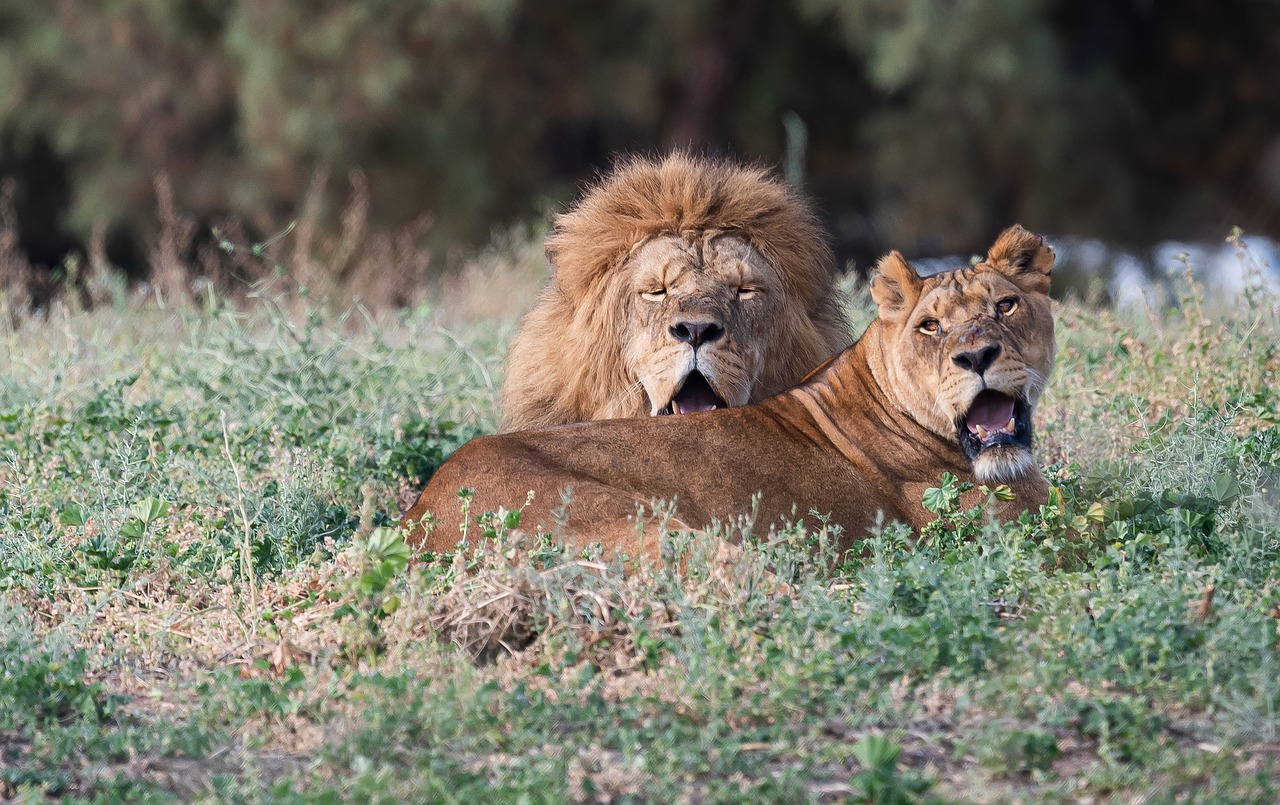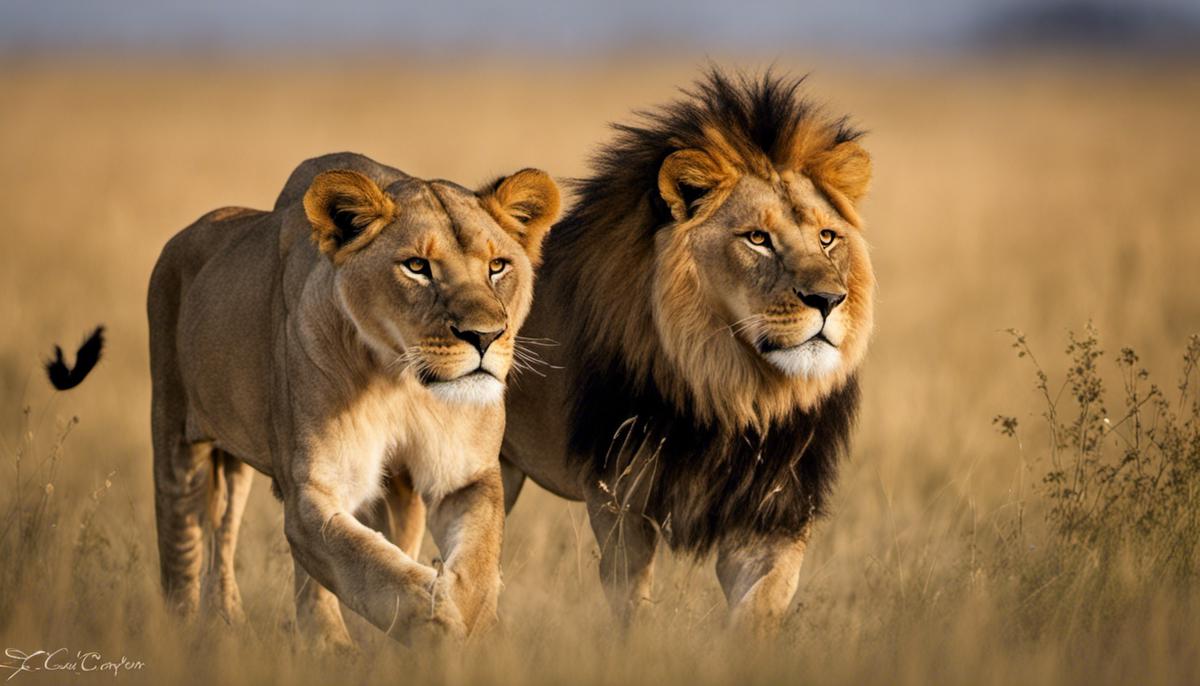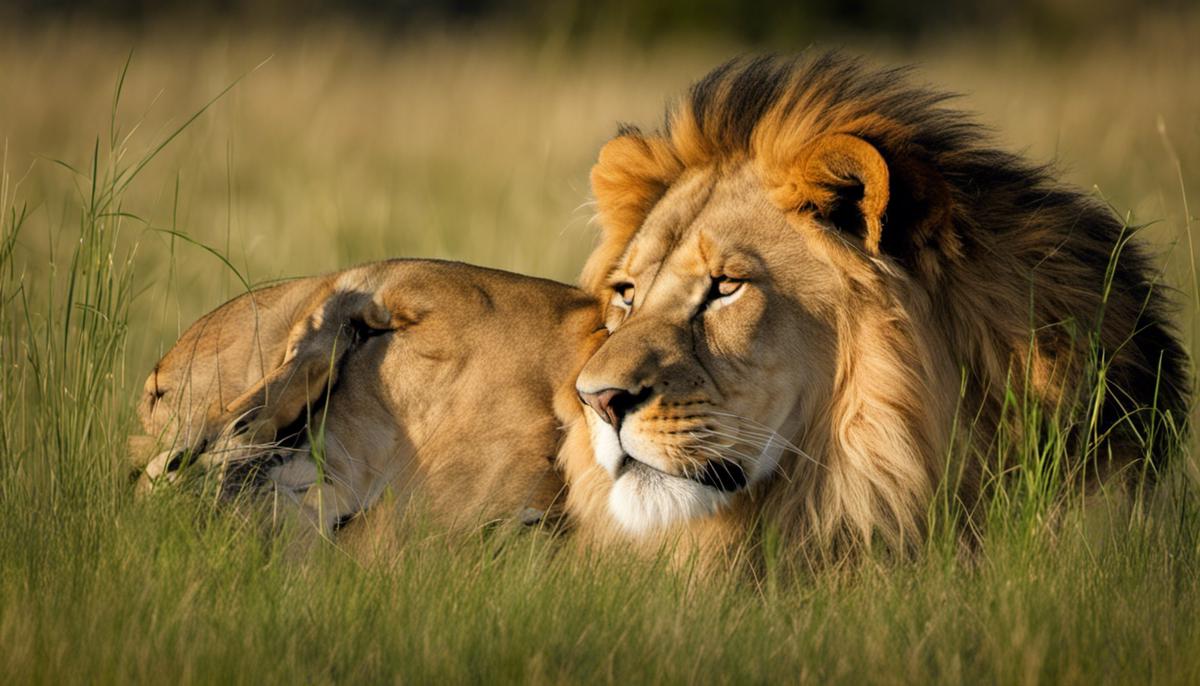What Are Lions Afraid Of? Lions, as apex predators, have few natural fears. However, they may exhibit caution or avoidance behaviors in response to specific situations or animals. For instance, they tend to avoid large groups of hyenas, which can outcompete or injure them. Unknown or unfamiliar objects can also cause anxiety in lions, a trait shared by many species known as neophobia. Fire and loud noises, such as those created by humans, can also frighten lions, leading to avoidance behaviors. Finally, despite their strength and prowess, lions tend to avoid confrontations with larger or equally capable predators such as adult elephants and buffalo.
Ever heard of the phrase, “as brave as a lion”? We all know that lions are known for their bravery and majesty. Yet, just like every other living creature, they experience fear too. A surprising revelation, isn’t it?
A common misconception about lions is that they’re fearless. But in truth, they’re susceptible to fear, just like us. Fear is a natural response to potential danger, and lions are no different.
Acknowledging and understanding a lion’s fear can significantly contribute to their conservation efforts. It helps us identify potential threats and devise strategies to ensure their survival.
Let’s debunk the myth of their absolute bravery today, shall we?
Understanding Lion’s Behavior
A lion’s behavior can be influenced by several factors. Environment, age, health, and social structure can all induce fear in lions. It’s a dynamic interplay of these elements that determines their responses to fear-inducing situations.
The environment plays a crucial role in shaping a lion’s fear responses. Loud noises, unfamiliar scents, or even sudden changes in their surroundings can startle them. Lions are creatures of habit, and any disturbance in their routine or territory can lead to anxiety. We might see them as strong and powerful, but they’re susceptible to the fear of the unknown, just like us.
One intriguing question that comes to mind is – what are lions’ weaknesses? Despite their strength and agility, lions can be vulnerable in several ways. A key weakness of lions is their susceptibility to diseases and parasites, which we’ll explore in detail later on. Another significant weakness is their dependence on their pride, which could be exploited by rival lions or other predators.
And when scared, lions often resort to intimidation tactics like roaring, growling, and charging. Their instinctive reaction is to protect themselves and their pride. Yes, our mighty lions do have a softer side!
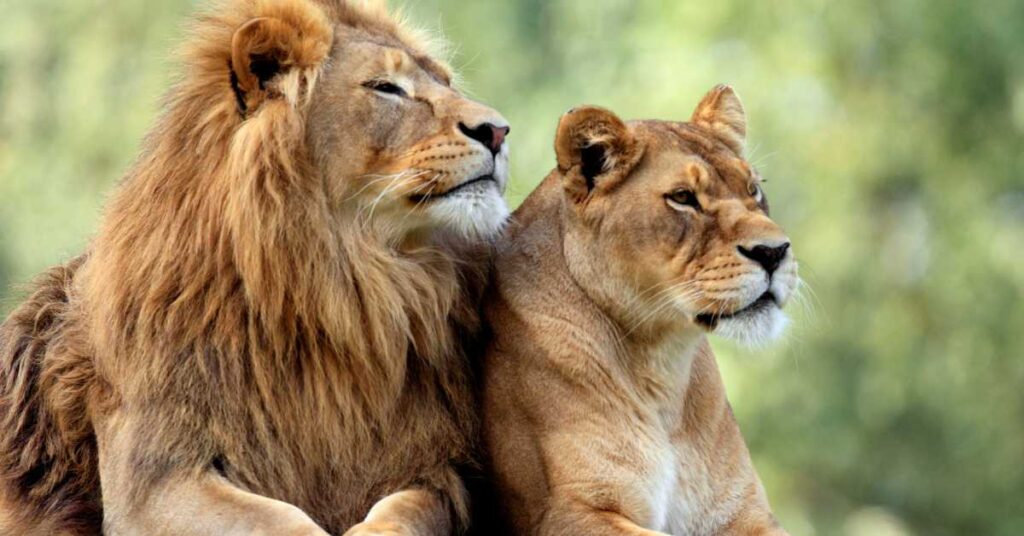
Understanding Lion’s Social Structure
Now, let’s explore how the social structure of a lion’s pride can affect their fears. Lions are social animals, and their pride offers them a sense of security and familiarity. The strength of their pride often deters other animals from challenging them.
When alone, lions may exhibit more fear. Solitary lions, particularly males who have been expelled from their pride, are often more cautious. They have to fend for themselves, and without the support of their pride, they become more vulnerable to threats.
What Threatens Lions?
Would you believe if I told you that lions have natural predators? Yes, you heard it right! While lions sit atop the food chain, they aren’t without threats. Predators like hyenas, leopards, and even crocodiles can pose a risk, particularly to young lions or lionesses on their own.
Human activity, unfortunately, also plays a significant role as a threat to lions. Habitat destruction, hunting, and human-wildlife conflict have instilled fear in lions, altering their behaviors significantly. It’s a bitter truth that we need to confront and address.
Fear in the Lion’s Habitat
Loss of habitat is a significant fear-inducing factor for lions. As their natural habitats are destroyed due to deforestation and human encroachment, lions are forced into smaller, crowded spaces, increasing competition and conflict. This loss of habitat also brings them closer to human settlements, further increasing their fear and stress.
Climate change is another fear factor for lions. Changes in weather patterns can lead to a scarcity of prey, altering lion behavior and inducing fear due to potential starvation. So, you see, even the king of the jungle can’t escape the effects of global warming.
Health and Fear in Lions
Lions, just like us, can become more fearful when they’re unwell. Health conditions, especially those affecting their mobility or hunting ability, can make them more cautious and fearful. Young and elderly lions who are not in their prime can be more fearful due to their decreased strength and agility.
As lions age, they may also become more afraid. Elderly lions, particularly those who have been expelled from their pride, may experience increased fear due to their vulnerability to threats and decreased hunting ability.

Impact of Disease and Parasites
Diseases and parasites significantly contribute to the fears of lions. Lions are susceptible to several diseases like Canine Distemper Virus (CDV), Feline Immunodeficiency Virus (FIV), and Tuberculosis. These diseases can weaken them, making them more vulnerable and fearful.
Parasites can also lead to weakness and disease in lions, affecting their hunting ability and increasing their fear response. Increased fear due to disease and parasites has also affected lion populations, leading to changes in lion behavior and dynamics within prides.
Fear and Its Impact on Lion Behavior
Fear can significantly affect the behavior of lions. Fearful lions may alter their hunting strategies, choosing to hunt smaller, less dangerous prey. They may also choose to hunt in groups to increase their chances of success and survival.
Fear can also alter the social structure of a lion pride. Increased fear can lead to increased aggression, particularly in males, affecting the overall dynamics of the pride.
What Are Lions Afraid Of?
Lions are apex predators and usually do not have natural predators that they fear. However, they may be scared or intimidated by other large predators like crocodiles, hyenas, or other lions. They may also be afraid of sudden loud noises or unfamiliar objects or situations.
Are Lions Afraid of Fire?
Here’s a fun fact: lions do have a fear of fire! Fire represents an uncontrollable threat to their habitat. This fear is likely instinctual, meant to protect them from harm. While they’re not likely to encounter fire in the wild frequently, when they do, they steer clear!
Are Lions Afraid of People?
Human activity has had a profound influence on lion fear behavior over time. Lions are increasingly fearful of humans, given our encroachment on their habitats and the risk of hunting.
Specific human activities instill more fear in lions than others. For instance, activities like hunting, construction, and even loud, unfamiliar noises associated with human presence can induce fear in lions. Unfortunately, hunting has been a significant contributor to this fear, especially where it has been practiced excessively or illegally.
Are Lions Scared of Other Animals?
It might be surprising, but lions are indeed afraid of certain other animals. While a lion won’t typically fear a single hyena, a pack of hyenas can intimidate and chase off a lion. Also, large herbivores like buffalo and elephants can be dangerous to lions, especially when they’re protecting their young ones. These interactions can lead to changes in lion behavior, making them more cautious and fearful in certain situations.
Are lions afraid of snakes?
This might seem like an odd question at first, but it has merit. You might wonder how a lion, a creature as massive and powerful as it is, could fear a creature as small (relatively speaking) as a snake. But it’s not about size—it’s about risk.
Some snake species are venomous, and lions, like many animals, instinctively recognize the threat they pose. A venomous bite can debilitate or even kill a lion. Therefore, even though they may not encounter snakes frequently, when they do, they show caution, preferring to avoid these slithery creatures whenever possible. So, yes, in their own way, lions are afraid of snakes.
Are lions afraid of lionesses?
This is a fascinating aspect of lion society. While male lions are generally dominant and larger, they do exhibit caution and respect towards lionesses. This is primarily because lionesses are the ones that form the core of the pride and do most of the hunting.
Additionally, lionesses, especially when they are in groups, can pose a significant threat to male lions. If a male lion becomes overly aggressive or if a new male lion tries to take over the pride, the lionesses will band together to protect their cubs. In these instances, male lions exercise caution.
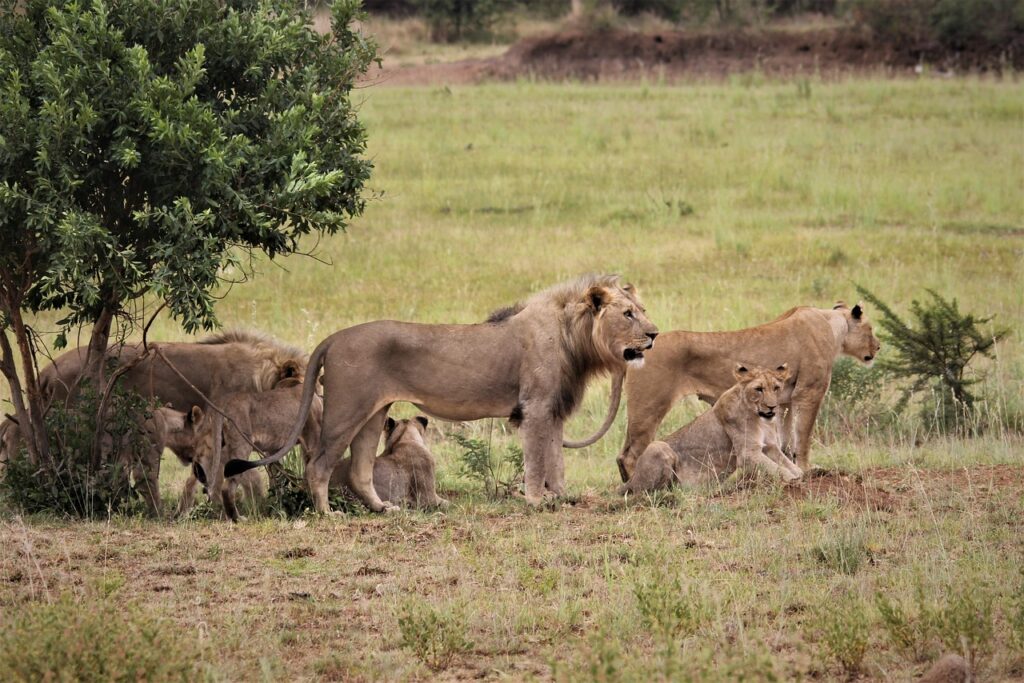
Are lions afraid of hyenas?
Hyenas and lions have a well-documented rivalry. They often compete for the same food sources, and confrontations between them are not uncommon. While a solitary lion is physically stronger than a solitary hyena, a pack of hyenas can be intimidating even to a lion.
Hyenas, when in large groups, can use coordinated strategies to challenge and even chase off a lion. This dynamic makes a solitary lion, or even sometimes a pair of lions, cautious and even fearful of a cackling clan of hyenas.
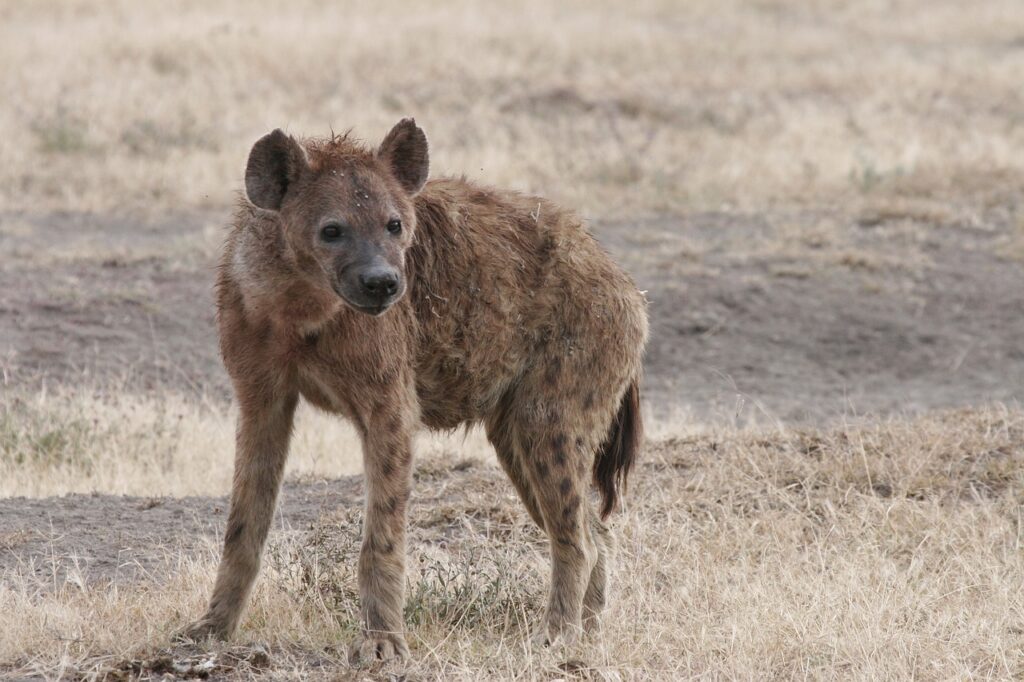
Are lions afraid of tigers?
This is a bit more theoretical, as lions and tigers don’t typically encounter each other in the wild – they live in different continents! However, in the instances where they have been made to share space, such as in captivity, there seems to be a mutual respect (or wariness) between the two species.
Both animals are apex predators, and both command a significant amount of power and strength. In a hypothetical face-off, factors like size, age, health, and even individual personality would likely determine whether one would be afraid of the other.
Are lions scared of hippos?
Hippos, despite their large size and somewhat docile appearance, are one of the most dangerous animals in Africa. They are extremely territorial and aggressive when it comes to defending their space and their young.
Lions are indeed cautious around hippos. While a very hungry pride of lions may attempt to take down a young or sick hippo, they generally avoid healthy adult hippos. The risk of injury from a hippo’s massive jaws and sharp teeth is too great. So, the simple answer is yes – lions are scared of hippos.
Are lions afraid of bees?
Just like us, lions do not enjoy being stung by bees! Although a bee sting is merely an annoyance to a lion, a swarm of bees can be intimidating to any creature, regardless of its size. There have been instances where bees have been used as a deterrent to keep lions away from human settlements, showing that lions do prefer to avoid these buzzing insects when they can.
Are lions afraid of elephants?
Elephants are the largest land animals, and they can be surprisingly aggressive when defending themselves or their young. Lions are indeed cautious around elephants. While lions have been known to prey on.
Are lions afraid of crocodiles?
Lions are usually cautious around water sources where crocodiles are present, but they are not necessarily afraid of them. Lions are powerful predators and can take down crocodiles, but they will avoid attacking them if possible. However, in some cases, lions have been known to hunt and kill crocodiles, especially when they are in a weakened or vulnerable state.
Final Thoughts
Understanding lion fears provides valuable insights into their behavior and helps in devising effective conservation strategies. By reducing fear-induced stress in lions, we can contribute to their well-being and survival.
Creating safe, protected habitats, mitigating human-lion conflicts, and educating communities about lion behavior can go a long way in addressing the fears of these majestic creatures. Let’s remember, even the bravest of us all have fears. It’s part of being alive!

